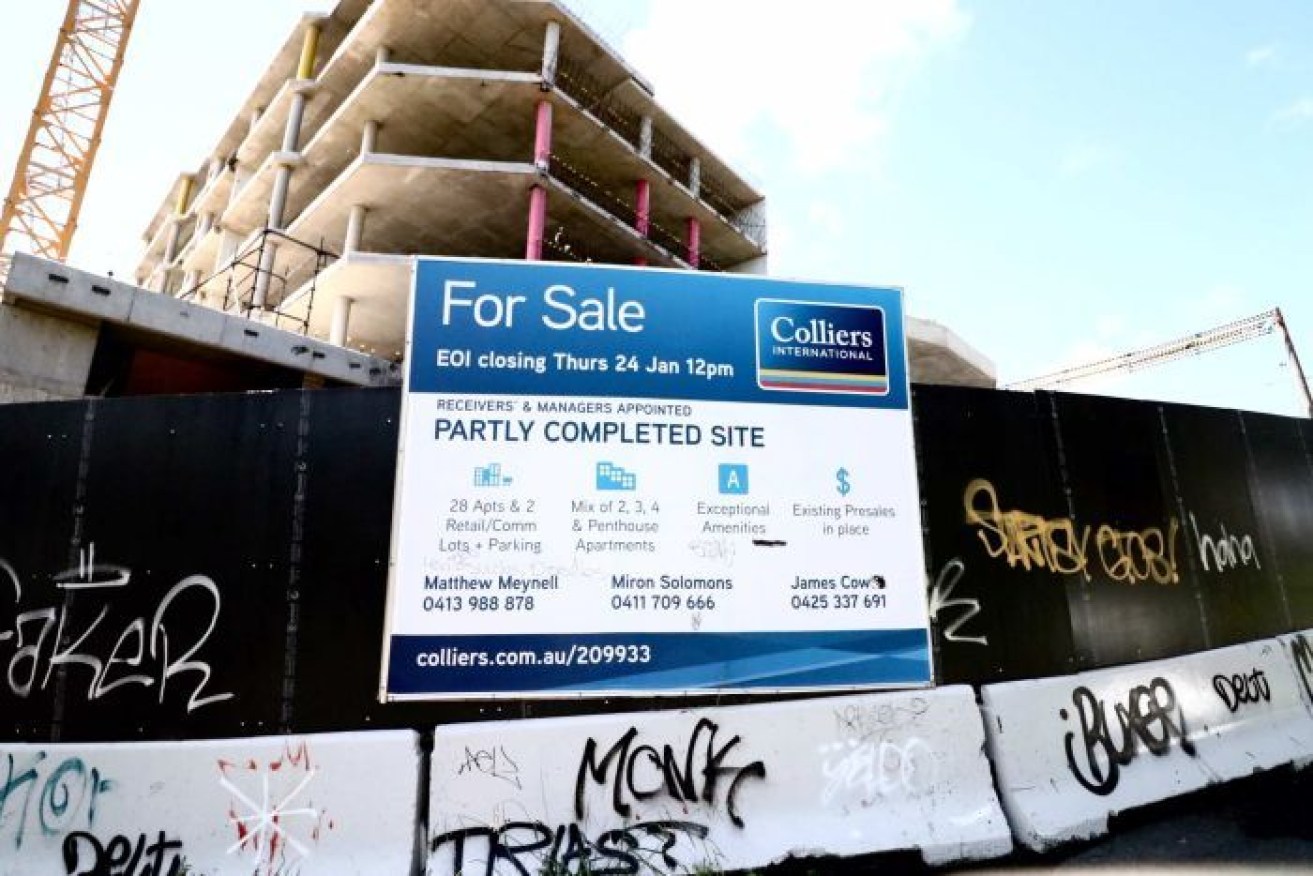Construction jobless hits high, as the downturn bites


In NSW, 556 construction companies went bust in 2018-19 – 101 more than in 2017-18. Photo: ABC
Underemployment in construction is close to hitting an all-time high, as the sector shows further signs of the impact of the nation’s economic slowdown.
Data released by the Australian Bureau of Statistics (ABS) on Thursday found underemployment in the construction sector has hit 81,100 workers – or 6.9 per cent of the workforce.
The figure is among the highest underemployment in construction since the ABS began collecting the data – only twice since 1991 has underemployment in construction been greater than it is today.
(Underemployment is the measure of how many of those working in a sector would like to have more work, and it’s become a nagging problem for Australia’s economy.)
The data is another symptom of the fallout from a consistent slide in dwelling approvals, which have seen dramatic falls in the 2018 and 2019 financial years.
Approvals apartment and house approvals have slumped 47.28 per cent and 11.68 per cent respectively over the past two years.
Construction is hugely important to the Australian economy, accounting for almost one in 10 jobs, and has done much of the heavy lifting in the economy, as the mining boom busted.
During the GFC, underemployment leapt 54 per cent between November 2008 and February 2009 from 4.34 per cent to 6.7 per cent – a rate of underemployment for construction workers lower than it is today.
The sobering news also came as ASIC released data showing the downturn was sparking the failure of many more businesses, with 556 construction companies going bust in 2018-19 in NSW – 101 more than in 2017-18.
Jobs vacancy data, also released on Thursday, backed up the bad news for the construction sector showing a 1.3 per cent decline in new job listings over the past quarter, suggesting the growth in jobs generally was also slowing.
Callam Pickering, economist at jobs site Indeed, told The New Daily it was clear things were looking bad, and worse was coming with unemployment set to rise.
“When people finish up projects they’re left with no new jobs to go to, which is why a lot of construction workers are looking at new sectors of the economy,” he said.
“Over the next couple of years, from a worker perspective, employment is likely to decline.”
He said the high rate of underemployment suggests businesses were “trying to keep on good workers but are doing that by reducing hours”.
But if things don’t pick up, he said they’ll unlikely be able to maintain that arrangement.
Infrastructure not the holy grail for jobs, says experts
There’s less work around, and commentators are tipping there to be even less in the future.
Indeed’s Mr Pickering said the widely expected employment windfall of major infrastructure projects, to pick up the slack from falling residential construction, wasn’t coming true.
“What we’re seeing here is that a lot of these big infrastructure projects are capital-intensive but not labour-intensive – residential construction is labour-intensive,” he said.
Steve Jovcevski, Mozo’s property expert and a property developer in Sydney, told The New Daily things weren’t looking good for construction, but that wasn’t unexpected.
“We were building so many apartments in Sydney and Melbourne it was getting to an area of oversupply,” he said.
“The industry is in holding mode. If things do pick up, then all well and good, but if they don’t they’ll look at sacking staff.”
But, he said, the latest figures didn’t look like they were turning around, and that the impact will flow through the construction chain from top to bottom as the downturn rolled on.
“It will start to affect sales staff in the real estate industry first, the people selling off the plan and people lending,” he said.
“As time goes on it’ll be project managers, construction managers on-site, then tradespeople – a lot of their contracts will be terminated.”
But he said the problems around building quality issues weren’t doing construction any favours, leading many to put off buying into new buildings and that the downturn may be good for the industry in the long run as it put less pressure on getting jobs done and more on getting them done right.
“Slap it up and make your money – that model will disappear,” he said.
“That’s the other problem. Scrutinising the industry, people are scared to buy new products. Banks are also concerned.”
All that said, tradies – the clock is ticking.








